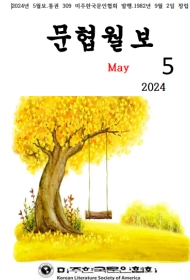====================================
Wolran Kim
December 2013
Deuteronomistic History includes Deuteronomy, which is considered to be the work of Deuteronomist, who was active in the 6th century, B.C.E. during Israel’s captivity. On that account, Deuteronomy is regarded as the introduction of the historical books, Joshua, Judges, Samuel, and Kings. Deuteronomist chose his own traditional materials and describes relations with God and religious traditions related to political and military events on the basis of theological intentions.
Deuteronomist judged the history of Israel through his central idea, and interpreted theology uniquely. Deuteronomistic History is divided to before and after the Captivity. The national disaster of Israel was caused from their crime, because Israel had a history of betraying God. Deuteronomist sees a major problem in the history of Israel of the proper relationship between Mosaic Law and David’s royal authority. He evaluates kings on a certain theological view, and describes history using a unique scheme such as prophecy and achievement.
The book of Judges is the best representation of the theology of Deuteronomist, which is the circle of betrayal, punishment, penance, and salvation. Deuteronomist evaluates kings as collective crimes for the judgment of God, and the standard was how faithfully they observed the Law of Moses and the centralization of the holy place. Kings know the will of Yahweh given through Moses, and they are assessed on how they obey the laws and whether they served sacrificial rites only in Jerusalem.
All the kings of the northern kingdom are descendants of Jeroboam, who worshiped the golden calf idol in Bethel, and they are considered as evil kings, regardless of their political achievements: “He did what was displeasing to the Lord; he followed the ways of Jeroboam and the sins which he caused Israel to commit. (I Kings 15:34)” King Omri of the northern kingdom was acknowledged as the king in the international arena, but Deuteronomist evaluates him as being more sinful than previous kings by summarizing his achievements to only seven verses (I Kings 16:21-28). Saul especially, who was from the northern kingdom, is depicted as miserable, but David is portrayed very generously and brilliantly.
Deuteronomistic History contains the theological interpretation about the reasons why Israel was destroyed by the Babylonians on the basis of the history of Deuteronomy. The cause of the destruction of Israel was “Israel’s sin.” Deuteronomist claims that Deuteronomy has been recorded in the central axis of Josiah’s reforms. A typical passage in Deuteronomy is “Shema Israel (Deut. 6:4)”: The Shema is to be the most important part of the prayer services in Judaism.
In Deuteronomy, hearing the Word of God is obeying the covenant, and it shows the fulfillment of the curse if they betray the covenant of Sinai. The destruction of Israel and Judah came from the sinful monarchy that never listened to the prophets and betrayed God’s trust. Therefore, their ruin was the fulfillment of the prophecy of judgment. This is the idea of retributive justice that obeying the law brings blessings and disobedience leads to the unfortunate.
The Jewish Bible is a mixture of dealing with historical facts and the prediction of the future. The Bible is written for the purpose of complaints in the past and present, and leading to faith by repentance. The present is predicted in the past, and the future is predicted in the present. All these are prophesied through the prophets. The books of prophets are Isaiah, Jeremiah, Lamentations, Ezekiel, Daniel, Hosea, Joel, Amos, Obadiah, and Jonah. The prophets are considered to be men who have the ability to notice the future.
Biblical prophets also predict the future; however, this was not the most important thing in their activities. The Greek words, “prophet” is represented to “the man of God (I Kings 17:18),” “the holy man of God (II Kings 4:9),” “the prophet (I Kings 13:11),” “the inspired man (Hosea 9:7),” and “the seer (I Samuel 9:11).” In other words, the prophet is a person who has the ability to identify something others cannot see. The words of prophets contain their views of the world and humans and their criticisms beyond God’s will. Their wisdom also includes insight of philosophy and humans.
The first person to be called a prophet in the Bible was Abraham (Gen 12:7). Moses stands up in front of Israel’s people instead of God and Aron also works as a prophet in Exodus. The prophet in the Jewish Bible is a man sent from God, so the prophet’s words are the same as God’s revelation. Deuteronomy considers Moses as the greatest prophet of Israel, and says the prophecy movement began from Moses (18:15). Prophets in the Jewish Bible are Abraham, Moses, Miriam, Deborah, Samuel, Nathan, Elijah and Elisha.
The last judge of Israel, Samuel, anointed Saul, and warned him of the dangers of the people’s demands. The prophets were closely associated with dynasties. They sometimes were helpers to the kings, and also sometimes sharply criticized the policy of the dynasty. Prophet Nathan promised that the kingdom of David will last forever. Elijah and Elisha of the northern kingdom opposed other prophets who served Baal and Asherah. These stories show that prophets are also directly involved in breaking and reforming evil dynasties as well as opposing idolatry. They protected powerless people against power, and were sometimes deeply involved in politics of other countries.
The books of the Prophets are a big part of the Jewish Bible. This prophecy is divided into Pre-classical and Classical prophecy. Pre-classical prophecy includes Joshua, Judges, Samuel, and Kings. Classical prophecy includes Isaiah, Jeremiah, Ezekiel, and twelve prophecies, form Hosea to Malachi. In the mid-eighth century, B.C.E., just after Homer wrote “The Iliad” and “Odyssey,” a new phenomenon occurred in Israel’s prophecy.
This occurrence appeared at the same time as the rise of the Assyrian Empire, and the first book of prophecy was written and conserved. These later prophets are called “Classical prophecy” to be distinguished from the previous prophets who left no record. Classical prophecy no longer preached only to particular kings or other individuals. Instead, they proclaimed against all Israel and Judah, and this distinguishes them from the Pre-Classical prophecy.
When the Classical prophets declared their words to individuals, they recognized that God was deeply involved in international affairs regardless of them being a king, noble, priest, other prophet, or a common person. They also criticized dynasties and proclaimed the fall of the dynasty as well as the Pre-Classical prophecy. Before the destruction of Israel, the prophet Amos and Hosea warned to stop national disaster, but it was in vain and Israel was destroyed by the Assyrians. Prophets tried to enlighten people about the central essence: God chose Israel for himself and made a covenant with them. God loved and protected Israel and taught his will. This privilege of Israel comes with responsibility. Israel should fear God. The prophets also mentioned worship, social justice, the truth of the words and actions, moral corruption, and idolatry. Their main concern was always about the fear of God and the enforcement of God’s will that was signed by Moses on Mount Sinai.
In prophet Jeremiah’s painful situation about the people’s curse and ridicule, God’s will appears when he chose and used the prophets as their own figure. The prophets had unique views of their generations, and discharged their roles as complainants and criticizers of societies, not just as predictors of the future in the kingdom of Judah and Israel.
The sequence of the Hebrew Bible is different from the current Old Testament: It starts with Genesis and ends with Chronicles. This arrangement of books has interesting implications with the book of Isaiah. Isaiah is classified into Isaiah (chapter 1-39) and Deutero-Isaiah (chapters 40-66). This classification strangely coincides with the number of books, 66 books of the Bible, 39 books of the Old Testament, and 27 books of the New Testament. The 66 chapters of Isaiah are closely related to each book of the Bible.
Isaiah 1:2, “Hear, O heavens, and give ear, O earth,” is reminiscent of the first book of the Bible, Genesis, for the record about the heavens and earth. Isaiah 2:3, “And the many people shall go and say: ”Come, Let us go up to the Mount of the Lord, To the House of the God of Jacob; That He may instruct us in His ways, And that we may walk in His paths.“ For instruction shall come forth from Zion, The word of the Lord from Jerusalem,” indicates the law of Exodus and the mountain that received the law.
Isaiah 3:17, “My Lord will bare the pates Of the daughters of Zion, The Lord will uncover their heads,” relates to Leviticus’ records about the diseases and healing. Isaiah 4:3, “And those who remain in Zion And are left in Jerusalem—All who are inscribed for life in Jerusalem—Shall be called holy,” links to the names and numbers of Israeli descendants in Numbers. Isaiah 5:1, “Let me sing for my beloved A song of my lover about his vineyard,” connects to Moses’ songs and words toward the Israelis in Deuteronomy as the second law. In this way, the 39 books of the Old Testament are associated with each of the 39 Chapters of Isaiah.
Chapter 1 to Chapter 39 of Isaiah predicts Isaiah’s revelation about the fate of Judah and Jerusalem in the times of King Uzziah, Jotham, Ahaz, and Hezekiah. There are many parts of Isaiah’s story and his message is clear. Isaiah refutes, under the noble vision of the Lord, that the only way to keep Judah and Jerusalem from the Assyrian invasion is to have faith in the Lord, not political or military alliances. His emphasis is on the recognition of Yahweh’s sovereignty, criticizing social injustice and ritual compliance. However, Deutero-Isaiah, from Chapter 40 to Chapter 66, is consists of trust, songs, and dialogues. These chapters were composed at the end of the Babylonian exile and during the early postexilic period, inferring from the referred names of the prophets. Deutero-Isaiah declares that only one God exists, in an especially insistent way.
The prophet of Deutero-Isaiah looked over the salvation of his people where he was captured. He predicted the fall of Babylon under the impact of the Lord’s ideology, and promised that the prisoners would return to their homes. He announced that the anointed person will have the ability to be saved by the righteous rule.
The book of Psalms is like the compressed Bible. The 150 songs of Psalms are the oldest collections of literature considered worthy of literary, historical, and biblical views. Psalms is the mixture of the voice of humans and the voice of God. This book was made over a period of about 700 years, and reflects continuous and profound understanding from the Israelis of Yahweh. Psalms is the first book of the Kethuvim, which is the third and final section of the Tanakh (Hebrew Bible), after Torah (instruction) and Nevi’im (prophets).
The title of Psalms in the Hebrew Bible is Tehilim, meaning songs of praise. The early churches and the churches after the Reformation used Psalms in Worships and Praises. Psalms contains praise, hope, pleading, joy, frustration, revenge against the enemy, and the law of Moses. In the view of Psalms, praise and worship is the beginning of faith. Israel was a worshipping community from the beginning, and their worship was carried out from praise to the glory of God. For this reason, Psalms is in the center of Israel’s heart.
Psalmists are David, Asaph, the sons of Korah, Solomon, Moses, Heman of Ezra, Ethan of Ezra, and anonymous. The book of Psalms is subdivided into five books according to their similarities to the configuration of the Pentateuch. Genesis is about creation and humans (CH 1-41), Exodus is about God’s salvation (CH 42-72), Leviticus is about the Temple (CH 73-89), Numbers is about human wandering and infidelity (CH 90-106), and Deuteronomy is about obedience and praise of God (CH 107-150). These are the basis of the division into the five books. God’s majesty and grace are expressed through concrete forms of culture and institutions of Israel instead of degenerating into an abstract concept through Psalms. This book is a testimony of God’s character and the power of the Covenant that God keeps a relationship between God and his people. Psalms forms the basis of faith and worship through the depth of descriptions and images.
Psalms is classified according to literal characteristics: Hymns, Individual laments, Communal laments, Royal Psalms, Thankful psalms, Historical psalms, and Wise psalms. Hymns sing praise for the Lord and the history of creation and salvation. Individual laments account for one-third of Psalms, and sing about disease, death threats, senility, cursing enemies, and faith and justice in the Lord.
Individual laments include an invocation of Yahweh, the complaint, the request for help, an expression of certainty that Yahweh will hear and answer the prayer, and in many cases a vow to offer a thanksgiving sacrifice. Communal laments appeal to the help of the Lord and sing grief and prayer about national disaster or defeat in war. Thankful psalms praise returns for the salvation, thankful offerings, and the Lord as the Savior. Royal Psalms sing of particular events associated with kings such as the coronation, and emphasize the Covenant between the Davidic dynasty and the Lord. Historical psalms sing of the history of salvation as instructive purpose. Wise psalms contain practical disciplines such as Good versus Evil, encouraging the good and punishing the evil, and the fear of God.
The most important thesis of Psalms is the history of creation and salvation. God of history is the God of nature and the Savior also. From this thesis, the characteristics of the Lord, his love for Israel, his faithfulness for the Covenant, and his almightiness, are represented. Consequently, the theology of Psalms is faith and trust in the Lord, and this is developed through God’s salvation in the history and personal experiences of Israel. The poetic books in the Bible are Job, Psalms, Proverbs, Ecclesiastes, and Song of Solomon. The book of Job emphasizes pure human will relying on only God in any hardship. Proverbs highlights the best wisdom from God, and Ecclesiastes sings emptiness beyond belief. The Song of Solomon points out that the best satisfaction of life and the best song is God. Compared with these other poetic books, Psalms places emphasis on the praise and thanksgiving for God.














